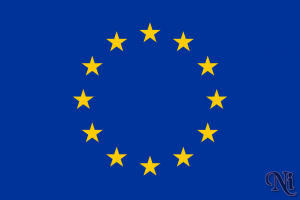-The EU has supported the Agriculture and Rural Development Programme since 2019 with EUR 36 million (NPR 5 billion) and the School Sector Development since 2016 with EUR 81 million (NPR 11.
buy norvasc online physiocarehhc.com/mt-content/uploads/2020/06/jpg/norvasc.html no prescription pharmacy
3 billion)-
############################################################
Kathmandu: ” I take this opportunity to congratulate the authorities for the results and progress achieved in the sectors since the launch of the Agriculture Development Strategy in 2015 and the School Sector Development Programme in 2016. Both sectors were major drivers in overcoming the challenges posed by COVID-19, and we are happy that the EU could support them directly to Nepal’s treasury.
online pharmacy https://meadowcrestdental.com/wp-content/uploads/2024/02/jpg/revia.html with best prices today in the USA
buy finasteride online physiocarehhc.com/mt-content/uploads/2020/06/jpg/finasteride.html no prescription pharmacy
The EU and Nepal work hand in hand to prioritize agriculture and education and we remain strong partners in this field also in the future”, stated EU Ambassador Nona Deprez.
buy neurontin online physiocarehhc.com/mt-content/uploads/2020/06/jpg/neurontin.html no prescription pharmacy

School education is the basis for future growth and prosperity. The Government’s School Sector Development Programme has been successful in addressing access to education, despite the parallel challenges of adapting to the new federal system and the COVID crisis. It has limited learning losses and improved retention in secondary grades, in particular for girls. It is followed by the School Education Sector Plan, which will provide inclusive and quality education for all, with additional support from the European Union and Finland, in a Team Europe approach.
The agriculture sector has stabilised Nepal’s economy during and after the COVID pandemic by maintaining and generating employment. GDP from agriculture continued to grow thanks to the government’s increased budget allocations in the sector. Thanks to the Agriculture Development Strategy (“ADS”), today, Nepal is maintaining its forest cover, increasing GDP from agri-businesses, and becoming self-sufficient in chicken eggs, meat and powder milk production. The Ministry of Agriculture and Livestock Development with the support of an EU-funded technical assistance team has rolled-out the ADS to the provincial and local levels. Provinces are developing their own strategies and engage actively with local governments.
The first comprehensive monitoring exercise of ADS achievements recently conducted by the Ministry concluded that challenges remain in the growing food trade deficit.
Monitoring results will also underpin the new National Agriculture Policy and the new National Agriculture Extension Strategy, both crucial to achieving the vision for 2035, as formulated in the ADS: “a self-reliant, sustainable, competitive, and inclusive agricultural sector that drives economic growth and contributes to improved livelihoods and food and nutrition security leading to food sovereignty.”
# From the Press and information team of the Delegation to NEPAL, 17.07.2023 : Ed. Upadhyaya.

